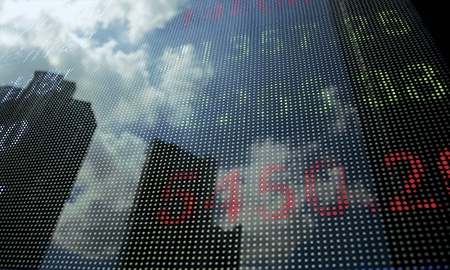As with any country undergoing a significant economic transformation, Equatorial Guinea relies on its banking sector to grow and adapt to the changing needs of its population.
At the beginning of the decade, while many countries remained mired in the after-effects of the financial crisis, Equatorial Guinea’s banking sector maintained strong balance sheets and healthy amounts of capital. During this period, the country achieved double-digit growth rates and experienced a boom in infrastructure-related construction, which continues to account for the majority of borrowing. Today, banks in Equatorial Guinea remain sound, according to International Monetary Fund (IMF) figures, with an average capital ratio of about 18% and a non-performing loan rate of about 6%. With this combination of prudent policy and corporate governance, Equatorial Guinea’s financial sector serves as a pillar of stability for its economy and is primed to lead the next phase of the country’s development.
At the core of this system is an exchange-rate regime that is geared toward global markets. Equatorial Guinea uses the CFA franc as its currency, which has been pegged to the euro at the rate of CFAF 655.957 per euro since the euro’s introduction in 1999. This means that investors and foreign businesses working in the country can count on a strong, stable and easily convertible currency, in addition to the freedom to repatriate their profits.
BGFIBank GE,
CCEI Bank GE, Société Générale de Banques GE and the National Bank of Equatorial Guinea (BANGE) have traditionally been the major players in the sector, with a relative newcomer, Togo-based Ecobank Transnational, being awarded a banking license to enter the Equatoguinean market in 2013.
Growing in size and capacity along with the rest of the economy, the banking sector is large enough to sufficiently cover market needs and to finance development, which remains a top priority for the government. However, the high costs of finance and limited access to credit instruments remain a hindrance to private sector entrepreneurial activities. Developments in recent years offer hope of continued progress toward increased financial inclusion, with the opening of branches and ATMs as part of a wider effort to expand banking services to meet the country’s growing demands.
Beginning business in Equatorial Guinea in 1994, CCEI Bank now stands as the country’s largest bank, accounting for about 70% of overall credits and nearly half of total bank assets.
Meanwhile, BANGE – a venture founded in 2007, 45% owned by the Equatoguinean government and part-owned by the Commercial Bank of the Philippines – already offers a wide range of retail financial products and services, and has recently launched mortgage lending services and also plans to launch a range of credit cards.
In recent years, BGFIBank has become a financial leader in the Central African Economic and Monetary Community zone, with a balance sheet surpassing $3 billion. Wholly owned by BGFIGroup, BFGIBank in Equatorial Guinea comprises one part of a wide network of retail banking that spans nine African countries. BGFIGroup places a strong emphasis on its clients’ needs, attributing its continuing success to the development of successful partnerships, by providing a broad range of financial services to support each customer’s personal and professional goals.

0 COMMENTS